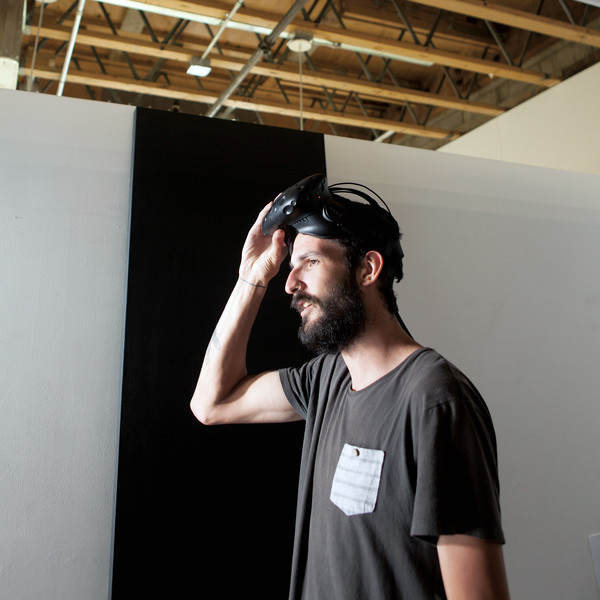feature / alumni / faculty / graphic-design / illustration
October 25, 2015
Writer: Cynthia Eller
Photographer: Jennie Warren
The educational innovators behind lynda.com and The Skool, and the booming business of online learning
We’re in the infancy of this industry, and there’s a lot of room for a lot of different angles on how to attack the problem of teaching online.
Lynda Weinman
The pioneers
Forbes magazine once called it “the 800-pound gorilla in the e-learning space.” So it was not altogether surprising when lynda.com was acquired by LinkedIn for a price befitting a giant: $1.5 billion. As LinkedIn’s largest deal ever, the announcement made international headlines. Less well known is the company’s origin story—one that goes back to a classroom at ArtCenter.
Company co-founder Lynda Weinman joined the faculty of ArtCenter in 1989. A film industry pro hired to teach motion graphics, her classes in computer-based design—a field still in its infancy—were soon filled to overflowing.
Long hailed as a pioneer in website design (her first book, a bestseller published in 1995 and now in its fourth edition, was Designing Web Graphics), Weinman sees her contribution primarily as one of foresight: “What I probably saw before many other people was that artists and designers and creative contributors were going to have a huge role in the Internet, and that they needed to understand how to publish to this medium.”
In 1996, she and lynda.com co-founder, ArtCenter alumnus and Trustee Bruce Heavin (BFA 93 Illustration), left the College to open their own business. They began offering recordings of lectures, first on VHS tapes, then DVDs and, with the arrival of the Internet, online.
“When we first started we were doing a lot of things like live classrooms and consulting and conferences. We were recording videos and writing books. We were kind of doing everything,” says Weinman. By 2007 she and Heavin decided that it was the expanding online video library that made their most valuable educational contribution. Today lynda.com offers its subscribers more than 83,000 videos spanning business, creative, technology and software skills.
At ArtCenter, she discovered a passion for teaching others in a clear, straightforward way to do things she herself had to learn on her own through a combination of curiosity, experimentation and a soul-crushing slog through telephone-book-sized technical manuals. From that passion a wholly new pedagogy was born.
“The act of storytelling is very human, and the act of giving instruction is something we’ve all been doing all our lives,” says Heavin. “To use the Internet as a tool, as an enabling extension, is a natural progression, and a massive improvement from books.”
It also offers massive reach. “I think ArtCenter has a 1 to 9 faculty-student ratio, and that’s great,” says Heavin of his alma mater. “A lot of schools have 1 to 20, still not bad. But we thought, what if it’s a 1 to 1 million ratio?”
Weinman and Heavin’s bold vision has been realized and lynda.com has become the go-to site for millions of people around the world seeking on-demand resources to make their work simpler, more productive and more effective.
Commentators trying to predict the future of online learning proffer opinions that range from dire to utopian. Weinman leans optimistic: “We’re in the infancy of this industry,” she says, “and there’s a lot of room for a lot of different angles on how to attack the problem of teaching online.”
Instead of charging half a million dollars to build somebody’s website or product, why not teach half a million people how to do it
Jose Caballer
The next generation
Attacking the problem from their own unique angle are ArtCenter Graphic Design alums Jose Caballer (BFA 96) and Chris Do (BFA 95), who recently co-founded The Skool, an online learning resource for designers.
Alongside Blind, the successful Santa Monica design studio he heads, Do has taught graphic design at the College for the past decade. Around 2010, he began to think about how he might give online clients something of the education his students were receiving at ArtCenter.
Completely independently, Caballer had also become interested in teaching designers: “I thought, instead of charging half a million dollars to build somebody’s website or product, why not teach half a million people how to do it?” With that thought in mind, Caballer called his mentor from ArtCenter—Lynda Weinman. She urged Caballer to explore his concept further, saying, “Jose, if anybody can do it, I know you can.”
Caballer began by recording This Week in Web Design, a weekly video distributed free on YouTube. Later he reconnected with Do, and the two began producing videos together, ultimately founding The Skool.
Like Weinman and Heavin in the early days of their business, Caballer and Do currently provide a variety of services, from workshops to corporate training to two online educational kits—“Agency in a Box” and “Core Strategy”—which aim, in Do’s words, to offer “a kind of graduate business studies program for designers.”
Caballer’s own education has been a transformative journey. “ArtCenter made me who I am today. I was just some Puerto Rican kid who liked to draw, and I went to one of the best design schools in the world and had opportunities that I never would have had.”
Now he offers others the chance to learn. “We have creative people of all sorts, and suddenly, by us teaching them business tools that they can use to manifest their ideas, they have more power.”






